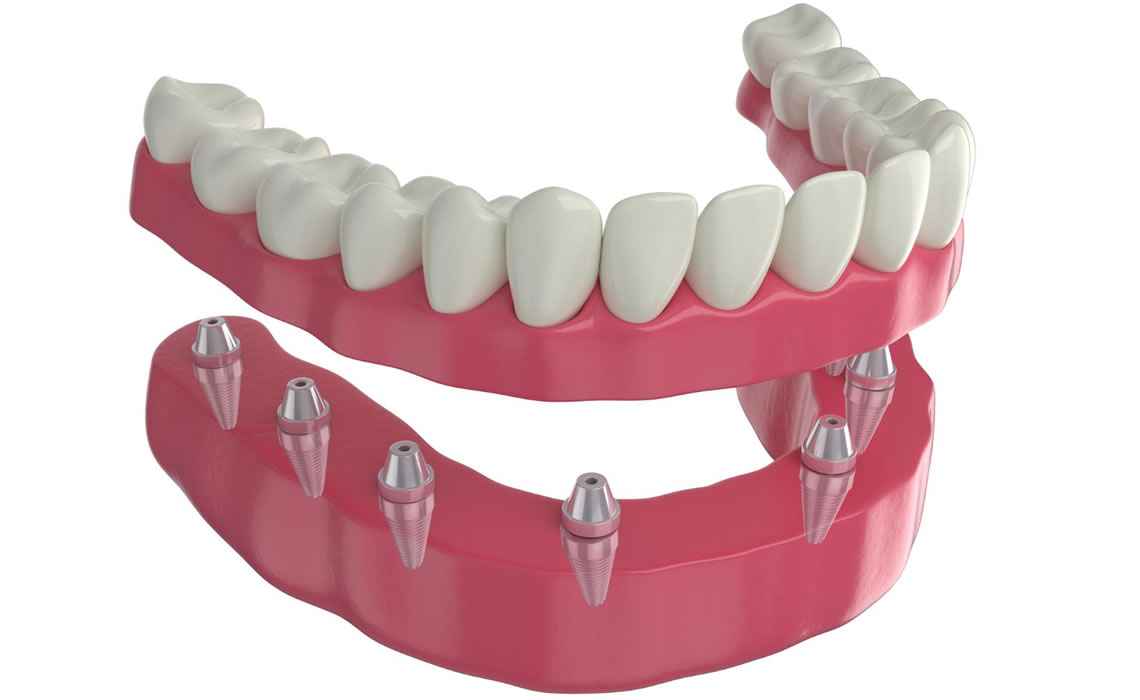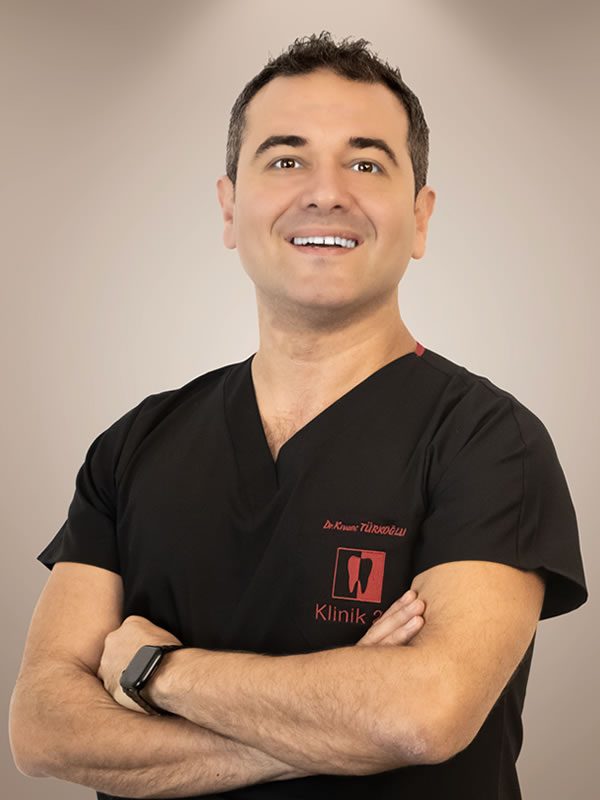
Smiling is a crucial element that affects an individual’s self-confidence and overall quality of life. However, in the case of complete tooth loss, this beauty and functionality can be lost. Full-mouth implantation offers an effective solution for restoring aesthetic appearance and chewing function when all teeth are lost. In this article, you will gain more information about what a full-mouth implant is, how it works, and the advantages it provides.
What is a Full-Mouth Implant?
A full-mouth implant is a dental restoration method applied when all teeth in the upper and lower jaws are lost. This method is carried out using titanium implants. Implants are inserted into the jawbone, and custom-designed prosthetics or sets of teeth are mounted on them, allowing patients to achieve a natural appearance and function.
What are the Advantages?
Full-mouth implants have several advantages:
Natural Appearance: Implants provide an aesthetic appearance similar to natural teeth, preserving the natural look of a smile.
Functional Improvement: Implants enhance chewing and speaking functions, enabling patients to carry out their normal daily activities more comfortably.
Durability: Titanium implants are long-lasting and durable, providing a reliable solution for many years.
Preservation of Jawbone Health: Implants stimulate the jawbone, preventing bone loss in the area where teeth are missing.
Sensitivity and Comfort: Specially designed prosthetics conform to the patient’s oral structure, providing better comfort and a natural feel.
How Does it Work?
The process of full-mouth implant treatment includes the following steps:
Examination and Planning: The dentist evaluates the patient’s oral structure and prepares a treatment plan, determining where the implants will be placed and which type of prosthetics will be used.
Placement of Implants: Through a surgical procedure, titanium implants are inserted into the jawbone. These implants integrate with the jawbone during the healing process.
Healing Process: Integration of the implants with the jawbone may take several months. During this period, patients may use temporary prosthetics or their existing ones.
Prosthesis Application: Once the healing process is complete, specially designed prosthetics or sets of teeth are mounted onto the implants.
Who is a Suitable Candidate?
Full-mouth implants are a suitable solution for many individuals who have lost all their teeth and wish to restore aesthetic appearance and chewing function. However, factors such as overall health, jawbone density, and oral hygiene need to be evaluated. Therefore, eligibility may vary for each patient.
Conclusion
Full-mouth implants offer an effective solution for completely restoring aesthetic appearance and function in cases of total tooth loss. With natural appearance, durability, and functional advantages, they become an ideal option for many individuals. For more information and consultation regarding full-mouth implant treatment, contact a dentist. Complete your smile and maintain a healthy mouth.



















